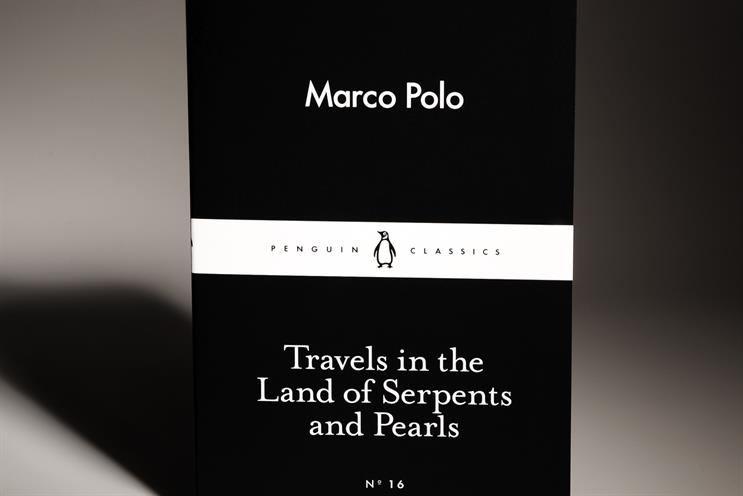
16 Travels in the Land of Serpents and Pearls
By Marco Polo
Marco Polo returned from a 24-year business trip to find that his native Venice was at war with Genoa.
In the kerfuffle that ensued he was imprisoned, and in his cell he dictated to a fellow inmate, Rustichello da Pisa, the most influential travelogue ever written, and Europeans’ first glimpse into the Asian world.
‘Travels in the Land of Serpents and Pearls’ is an extract focused on the kingdoms of India as they were in the 13th century.
The stories are presented with a conscientiousness of recall that is in tension, at times, with their fabulous details (even unicorns earn a mention).
This intriguing contrast between worldly fact and Argonautic embellishment is precisely the reason why brand builders should read it.
It is rare that anyone has the freedom of describing a world which not a single contemporary, beyond a handful of unchronicled or unfortunate pioneers and missionaries, has any first-hand knowledge of.
Writing about foreign culture with such exuberance is counterproductive nowadays, partly because no culture is foreign any more, but mainly because technology has mobilized three billion internet users to rate, verify and countermand any observation that might surface.
If Polo’s account were posted on Trip Advisor, legions of cost-conscious honeymooners with alphanumeric pseudonyms would spring up with poorly framed ‘user photographs’ demonstrating that he was a fantasist with a poor sense of geography.
And in one sense it is hugely reassuring to know, as we move into the sharing economy, that we no longer rely on businesses or brands or literary monopolists for reliable information.
But 715 years after the publication of Marco Polo’s ‘Travels’, and in a world giddy with new peer to peer structures of information and trust, I wonder whether our ability, figuratively, to import into the minds of others wondrous new ideas from exotic intellectual climes has grown, or whether all of this democratic empiricism is causing it to shrink.
Marco Polo’s account of Asia is an act of imagination. It is a romantic account not because he stands to gain from exaggeration, but because the otherness of the world he has returned from is, in each of its alien paradigms, incomprehensible at a literal level. He is bringing a new set of ideas to Europe, and with them the possibility of new meaning.
His accounts were reflected in the cartography of the day, and what is important is not that the maps grew in accuracy (they didn’t) but that the maps grew at all. People want new meaning. They want the map of the mind to keep growing, and this is not a literal exercise.
Least of all for brands, which are themselves, like the Asia of medieval Europe, mental real estate first and foremost.
Giles Hedger is the chief strategy officer at Leo Burnett London & Worldwide.
Read the full 80 Books in 80 Days series here


.jpg)


.jpg)